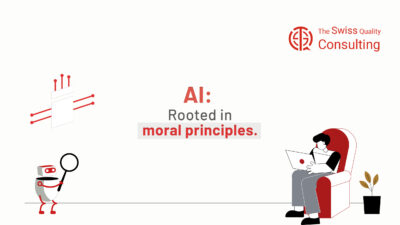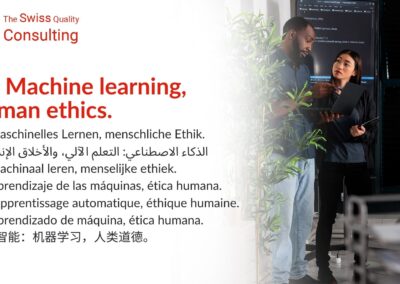Affective Business Ethics
In the realm of business ethics, discussions often center around principles, codes of conduct, and legal frameworks. However, the quote, “In ‘Reclaiming Virtue,’ I argue that we have had an element missing in moral education. That element is ‘affect.’ Affect is simply the technical word for feeling or emotion,” draws attention to a crucial aspect often overlooked in corporate settings. This article delves into the significance of incorporating emotion, or affect, into the fabric of business ethics. For business executives, mid-level managers, and entrepreneurs, recognizing and navigating the emotional dimension of ethical decision-making is paramount for sustained success.
The Missing Element in Moral Education
In the bustling marketplace of business ethics, a curious tension lingers between the cold logic of rules and the whispering melody of emotion. Traditionally, moral education in this realm has focused on the rigid framework of rules, principles, and legal compliance – essential instruments, no doubt, but akin to navigating a storm with only a compass and map, neglecting the subtle swells of the ocean itself. This is where affect, the kaleidoscope of our emotions, steps onto the stage, playing a crucial role in shaping our ethical perspectives and influencing our decisions.
Imagine a seasoned captain, her weathered face etched with the stories of countless voyages. She knows the winds and currents, the ebb and flow of regulations and legal boundaries. Yet, she also understands the whispers of fear and ambition that can cloud judgment in the face of a moral storm. Her compass may point north, but it’s the surge of empathy for her crew, the flicker of indignation at an unfair contract, that ultimately guides her decision to choose the right course, even when it means navigating uncharted waters.
This isn’t about abandoning the lighthouse of rules; it’s about acknowledging its limitations. Morality, especially in the murky waters of business, defies the rigidity of mere compliance. Consider the executive faced with a seemingly profitable opportunity, yet one tinged with a subtle dissonance – a whisper of unease that hints at potential harm to employees or the environment. Ignoring this emotional signal, this flicker of affect, could lead to a calculated, yet ethically questionable decision.
But harnessing the power of emotion does not demand discarding reason. It’s about creating a symphony, where the logical melody of rules dances with the emotional counterpoint of empathy, compassion, and a sense of social responsibility. This harmony fosters a nuanced understanding of ethics, allowing individuals to navigate the gray areas where legal compliance alone leaves them adrift.
Leaders who embrace this emotional dimension become conductors, weaving a culture where ethical decision-making isn’t just about following the score, but about listening to the whispers of the orchestra. They create spaces where open dialogue nourishes moral awareness, where emotions like indignation at injustice and pride in doing the right thing are not silenced, but embraced as guides towards responsible choices.
This isn’t a call for unbridled sentimentality; it’s a plea for a more holistic approach to business ethics. By acknowledging the vital role of affect, we can move beyond a sterile landscape of rules and towards a vibrant tapestry of ethical decision-making, where reason and emotion intertwine to guide us towards a future where success is measured not just by profits, but by the harmonious echoes of a well-conducted moral compass.
The Impact of Affect on Moral Decision-Making
Emotions are powerful drivers of human behavior, and they significantly impact the moral choices individuals make in professional settings. Business executives facing ethical dilemmas often experience a range of emotions, including guilt, empathy, or moral outrage. Acknowledging and understanding these emotions is essential for navigating ethical challenges effectively. By recognizing the emotional dimension, leaders can make more informed and nuanced decisions that align with both ethical principles and organizational values.
Reclaiming Virtue in Business Ethics
The notion of ‘reclaiming virtue’ underscores the importance of fostering virtuous behavior in the business world. Virtues such as integrity, compassion, and responsibility are deeply intertwined with emotions. Executives, mid-level managers, and entrepreneurs must recognize the role of affect in cultivating and reinforcing virtuous conduct within their organizations. This approach goes beyond mere compliance, encouraging a genuine commitment to ethical values.
The Role of Leadership and Management Skills
Leadership and management skills, often focused on strategic decision-making and operational efficiency, should also encompass emotional intelligence. Effective leaders understand the impact of their decisions on individuals and the broader organizational culture. By integrating emotional awareness into leadership training, businesses can cultivate leaders who navigate ethical challenges with empathy and authenticity.
Practical Application in Effective Communication
Effective communication within a business context is deeply influenced by emotions. Whether conveying ethical guidelines, addressing misconduct, or promoting a culture of openness, understanding the affective dimension is crucial. Communication strategies that resonate emotionally with employees are more likely to foster a sense of ethical responsibility and commitment to shared values.
Generative Artificial Intelligence: A Tool for Ethical Decision-Making
As businesses embrace technology, including Generative Artificial Intelligence (GAI), it becomes imperative to consider its ethical implications. GAI systems should be designed to recognize and respond to affective cues, ensuring that automated decision-making aligns with ethical standards. Integrating emotional intelligence into technology reflects a holistic approach to ethical business practices.
Conclusion: Bridging the Emotional Gap in Business Ethics
In conclusion, the quote emphasizes the necessity of incorporating affect into the realm of business ethics. For business executives, mid-level managers, and entrepreneurs, recognizing and addressing the emotional dimension of ethical decision-making is not a weakness but a strategic imperative. By reclaiming virtue and acknowledging the role of emotions, businesses can foster a culture of ethical leadership, integrity, and responsibility, ultimately contributing to long-term success.
#EmotionalIntelligence #BusinessEthics #LeadershipSkills #VirtuousBusiness























